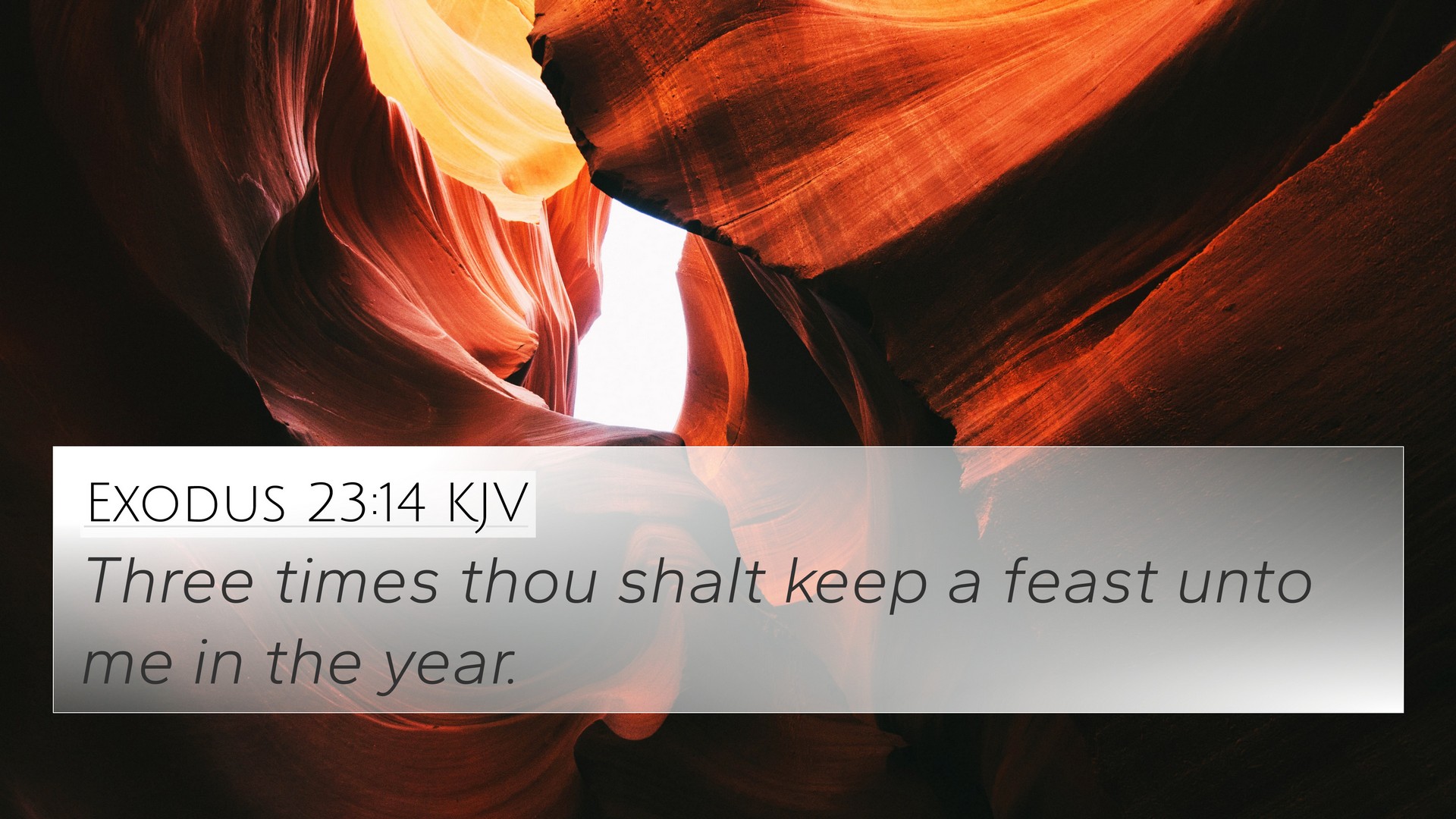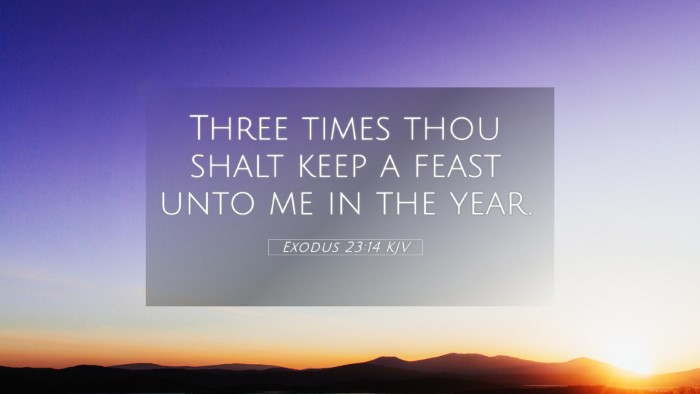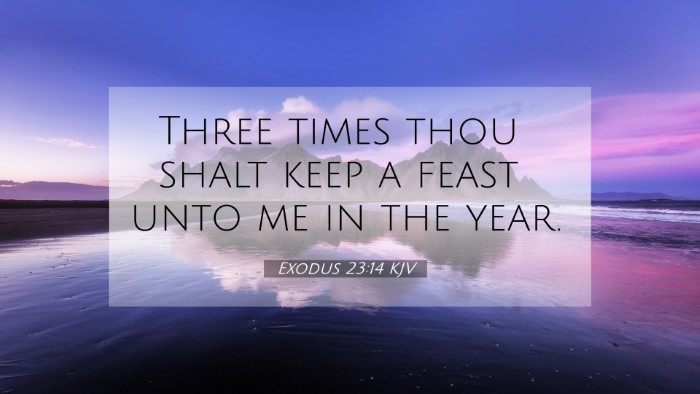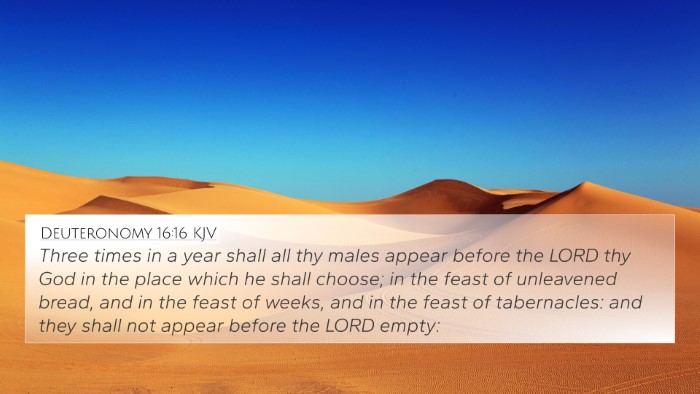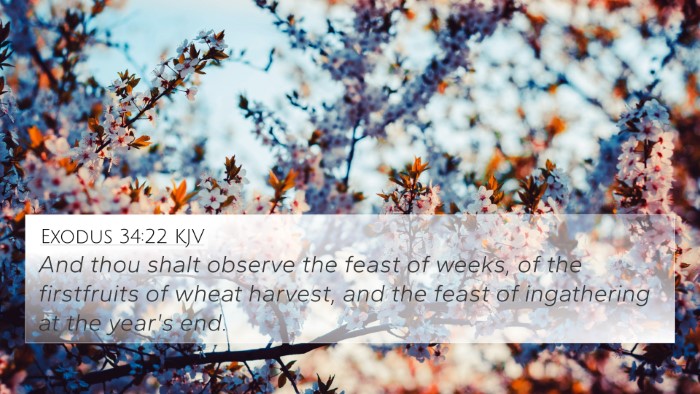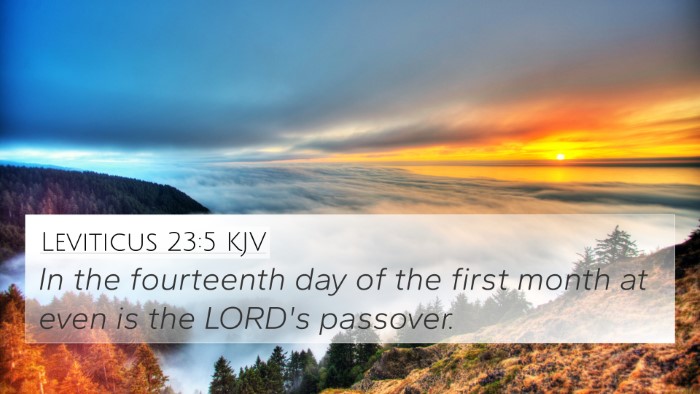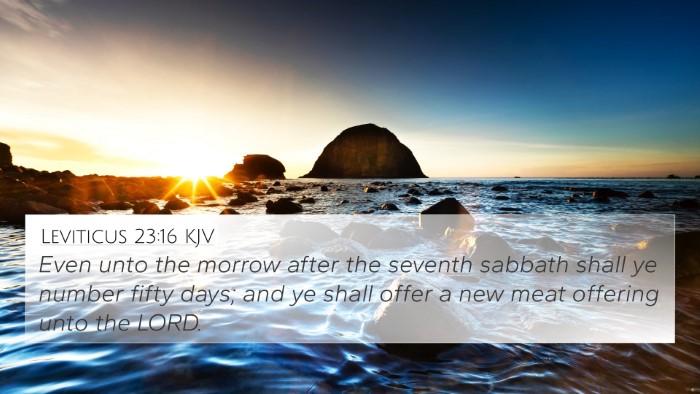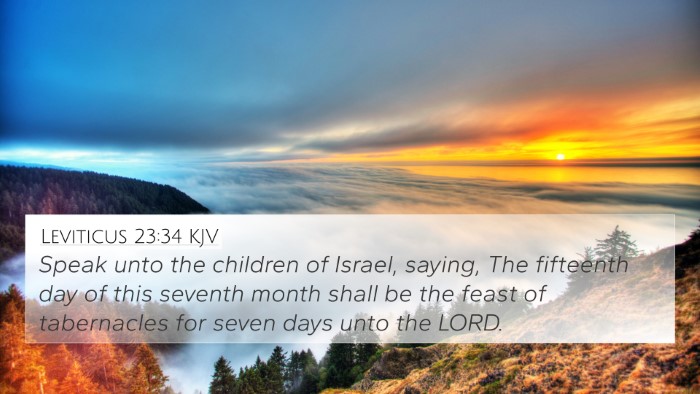Exodus 23:14 - Meaning and Interpretation
Exodus 23:14 states, "Three times thou shalt keep a feast unto me in the year." This verse outlines God's command to the Israelites to celebrate three annual festivals, which hold deep spiritual significance and serve as a reminder of God's providence and covenant with His people.
In this comprehensive analysis, we will explore the meaning of Exodus 23:14 by synthesizing insights from renowned public domain commentaries, such as those by Matthew Henry, Albert Barnes, and Adam Clarke. We will also highlight connections between this verse and other parts of the Bible, helping to build a deeper understanding of its context and relevance.
Understanding the Command
Matthew Henry emphasizes that the command to keep feasts is not just about celebration but about recognizing God's establishment and ongoing relationship with Israel. Each feast serves a distinct purpose:
- The Feast of Unleavened Bread: Celebrates Israel’s quick departure from Egypt.
- The Feast of Weeks: Also known as Pentecost, marks the end of the harvest season and acknowledges God’s provision.
- The Feast of Tabernacles: Reminds the Israelites of their wandering in the wilderness and God’s care during that time.
Adam Clarke notes that these feasts foster unity among the people, encouraging them to come together and remember their history, thus reinforcing their identity as God's chosen nation.
Spiritual Significance
Albert Barnes stresses that these festivals are not merely cultural practices; they embody theological truth, reminding believers of the importance of worship and gratitude toward God. Each event is a proclamation of God’s grace and faithfulness.
Thematic Connections in Scripture
This verse ties into a broader biblical narrative regarding worship and celebration. Here are several Bible cross-references that enhance our understanding of Exodus 23:14:
- Leviticus 23:4-44: An expanded description of the feasts as prescribed by God.
- Deuteronomy 16:1-17: A reiteration of the feasts with additional context emphasizing the importance of central worship.
- Psalms 122:1-4: Expresses joy in going to the house of the Lord, central to the feasts.
- John 7:2: Mentions the Feast of Tabernacles, illustrating its ongoing importance in Jewish culture and the New Testament context.
- Colossians 2:16-17: Shows how these feasts are a shadow of what is to come in Christ.
- Hebrews 10:25: Encourages believers not to neglect assembling together, resonating with the community aspect of the feasts.
- Matthew 26:17: Jesus' conversation regarding Passover connects to the greater significance of these feasts.
Connections Between Bible Verses
Linking Bible scriptures is essential for gaining a well-rounded perspective on biblical themes. In Exodus 23:14, the command for feasting is pivotal in understanding God’s desires for His people, encapsulating themes of obedience, celebration, and identity. Contextualizing this command within the framework of both the Old and New Testaments allows for a richer interpretation:
- The celebration of feasts serves as a means of remembering God’s faithfulness throughout generations.
- These gatherings reflect a pattern of communal worship found throughout scripture.
- Interactions in the New Testament emphasize a continued recognition of these festivals, illustrating their lasting significance.
Irony of Forgetfulness
Henry observes the irony in human forgetfulness regarding God's provisions, warning that the command to celebrate is necessitated by the propensity to forget God's goodness. Each feast is a divine remedy against neglecting one's spiritual heritage.
Applying the Teachings of Exodus 23:14
In developing a practical understanding of this verse, believers are encouraged to reflect on how to implement it within the context of today’s faith communities. The feasts reflect a rhythm of life centered around acknowledgment and gratitude toward God.
Incorporating practices of remembrance into personal and community worship can be seen as a modern parallel to the feasts, thereby fostering a rich spiritual life connected to the biblical history.
Tools for Bible Cross-Referencing
For deeper exploration, here are tools that assist in cross-referencing:
- Bible Concordance: A valuable resource for finding verse connections.
- Bible Cross-Reference Guide: Helps locate related verses for comparative study.
- Cross-Reference Bible Study: Techniques for systematically studying Bible verses in relation to one another.
Conclusion
Exodus 23:14 invites us to engage with Scripture in a manner that acknowledges our history and the faithfulness of God. Through the insights garnered from various biblical commentaries and the rich tapestry of scriptural cross-references, believers are encouraged to deepen their understanding of God’s commands and their implications for worship and community life. By linking Bible verses and embracing thematic connections, we find a clearer vision of God's ongoing covenant with His people.
